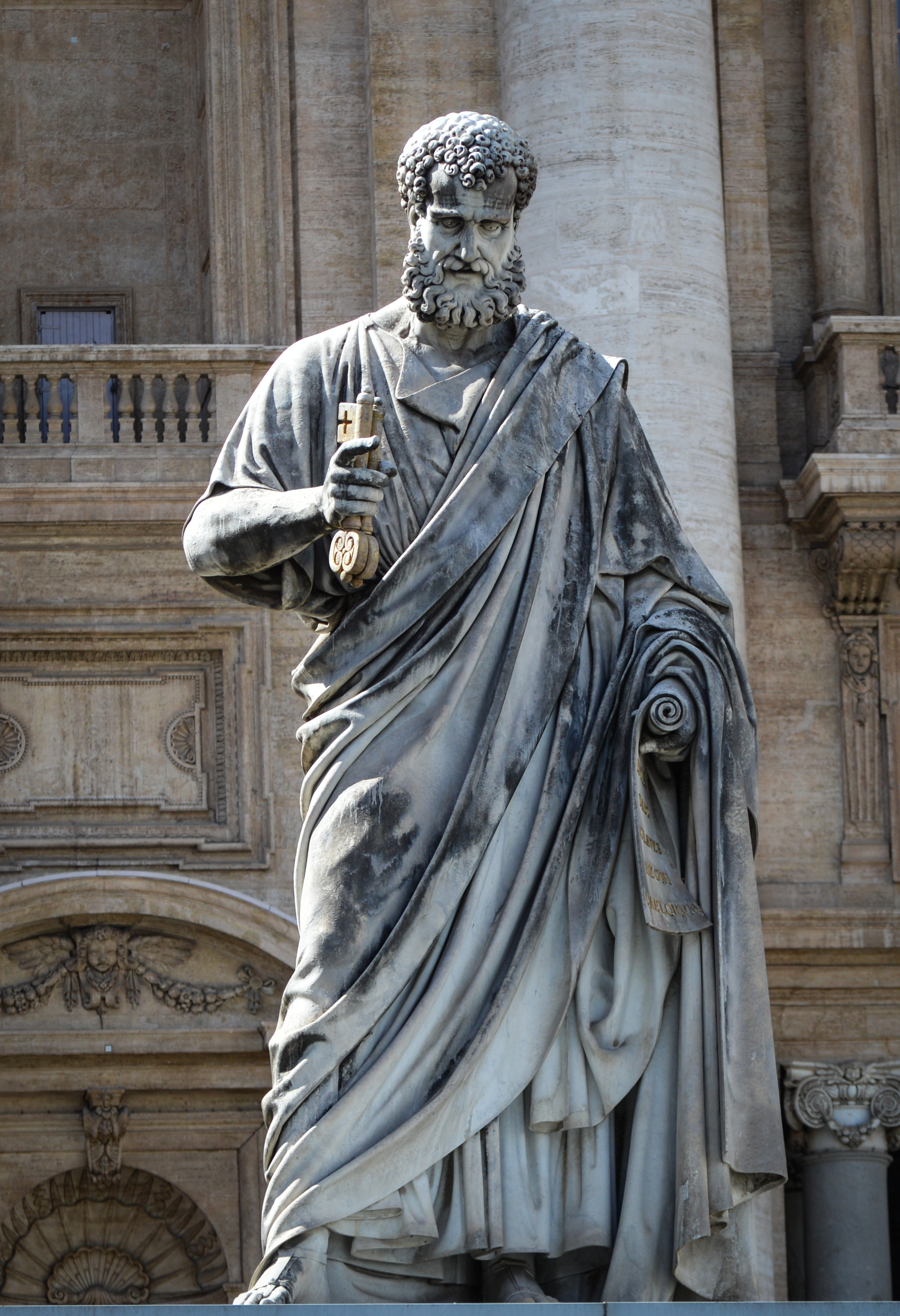In today’s Gospel Peter plays two seemingly opposing roles. He is the one who speaks the truth of Chrst’s identity and he is the one who rebukes Christ. It seems to me that this is pretty indicative of what we see of Peter in the Gospels. He is a man of unparalleled faith but he is also profoundly human. He is relatable because, despite his great faith, he doubts and he messes up and he questions when he does not understand.
So how does Peter, the man who doubts and the man who questions, come to be the rock upon which our Church is built? In the Gospel today when he rebukes Jesus, Jesus responds by saying, “You are thinking not as God does, but as human beings do”. What does Jesus mean by thinking as God does? How is that different from thinking as human beings do? Is it even possible for us as human beings to think as God does?
I think the answer to these questions lies in Peter’s own expectations of what and who the Messiah, the Christ, would be. If Christ is the one who redeems the world, that means that He must be powerful and strong which is what Peter expected. But Christ’s explanation of what He will endure does not exactly align with the typical notion of power and strength. In fact, suffering greatly, being rejected by those in authority, and being killed all sound like the exact opposite of power and strength. But this is what Jesus means by thinking as human beings do. It takes work for us to see the power and strength at the center of God’s plan for salvation. It took the strength only God possesses for Him to humble Himself, become man, and die on the cross for the sake of our salvation. For us to think as God does, we must let go of our expectations of who Christ is and acknowledge the strength and power that lay in the sacrifice He made for us.
In our faith, may we remember that our God is humble and strong. It is His strength that freed us from our sins and it is His humility that we seek to imitate when we come to Him in our moments of despair.
En el Evangelio de hoy, Pedro tiene dos papeles aparentemente opuestos. Dice la verdad sobre la identidad de Cristo y luego reprende a Cristo. Me parece que esto es bastante indicativo de lo que vemos de Pedro en los Evangelios. Es un hombre de fe inigualable pero también profundamente humano. Nos podemos identificar con él porque, a pesar de su gran fe, duda y se equivoca y cuestiona cuando no entiende.
Entonces, ¿cómo es que Pedro, el hombre que duda y cuestiona, llega a ser la roca sobre la cual se construye nuestra Iglesia? En el Evangelio de hoy, cuando reprende a Jesús, Jesús le responde diciendo: “Tú no juzgas según Dios, sino según los hombres”.¿Qué quiere decir Jesús con pensar como Dios? ¿En qué se diferencia eso de pensar como lo hacen los seres humanos? ¿Es posible que nosotros, los seres humanos, pensemos como Dios?
Creo que la respuesta a estas preguntas se encuentra en las propias expectativas de Pedro sobre qué y quién sería el Mesías, el Cristo. Si Cristo es el que redime al mundo, eso significa que Él debe ser poderoso y fuerte, y eso es lo que Pedro esperaba. Pero la explicación de Cristo de lo que soportará no se alinea exactamente con la noción típica de poder y fuerza. De hecho, sufrir mucho, ser rechazado por los que tienen autoridad y ser asesinado suena exactamente como lo opuesto al poder y la fuerza. Pero esto es lo que Jesús quiere decir al pensar como lo hacen los seres humanos. Nos cuesta trabajo ver el poder y la fuerza en el centro del plan de Dios para la salvación. Era necesario la fuerza que sólo Dios posee para que se humillara, se hiciera hombre y muriera en la cruz por nuestra salvación. Para que pensemos como Dios, debemos dejar de lado nuestras expectativas de quién es Cristo y reconocer la fuerza y el poder presentes en el sacrificio que hizo por nosotros.
En nuestra fe, recordemos que nuestro Dios es humilde y fuerte. Es Su fuerza la que nos liberó de nuestros pecados y es Su humildad la que buscamos imitar cuando acudimos a Él en nuestros momentos de desesperación.
 Dakota lives in Denver, CO with her husband, Ralph, and their two sons, Alfie & Theophilus. She is the Dean of Enrollment Management for Bishop Machebeuf High School where her husband also teaches. You can find Dakota at the zoo or a brewery with her family or with her nose in a book at home. For more of Dakota’s writing check out https://dakotaleonard16.blogspot.com/
Dakota lives in Denver, CO with her husband, Ralph, and their two sons, Alfie & Theophilus. She is the Dean of Enrollment Management for Bishop Machebeuf High School where her husband also teaches. You can find Dakota at the zoo or a brewery with her family or with her nose in a book at home. For more of Dakota’s writing check out https://dakotaleonard16.blogspot.com/
Feature Image Credit: Christian Gutiérrez, LC, cathopic.com/photo/6181-estatua-san-pedro

